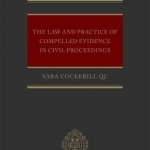The Law and Practice of Compelled Evidence in Civil Proceedings
BookThis item doesn’t have any media yet
2012 | Law
Courts have the right to compel non-parties to give evidence or produce documents in aid of litigation and arbitration proceedings. As well as providing a clear statement of the law relating to witness summonses, letters of request and the European Taking of Evidence Regulation, this book gives practical guidance with use of checklists, for example on the issues arising in drafting and defending letters of request and conducting or advising at a hearing of a deposition under a letter of request. The book considers how regulation from outside England and Wales affects compelled evidence, explaining the European Taking of Evidence Regulation and its similarities and differences to the Hague Convention. As well as giving guidance on compelling evidence from abroad in aid of English proceedings, with reference to the different procedures applicable in relation to different countries, the book also addresses cases where evidence is compelled in England for use in foreign proceedings and where evidence is compelled within England and Wales for use in domestic cases; identifying the common principles which underpin the different areas and key differences to consider.
Finally, the book addresses related jurisdictions including CPR 31.17 (third party disclosure), Bankers' Books Evidence Act, and evidence in aid of arbitrations and CPR 71 (cross examination of judgment debtor). Clearly structured to contain the law, procedure, and relevant source materials, this book provides an invaluable and single point of reference to bring clarity and detail to a previously obscure and under-resourced area of the law. With a Foreword by Mr Justice Andrew Smith.
Related Items:
| Published by | Oxford University Press |
| Edition | Unknown |
| ISBN | 9780199697557 |
| Language | N/A |
Images And Data Courtesy Of: Oxford University Press.
This content (including text, images, videos and other media) is published and used in accordance
with Fair Use.
